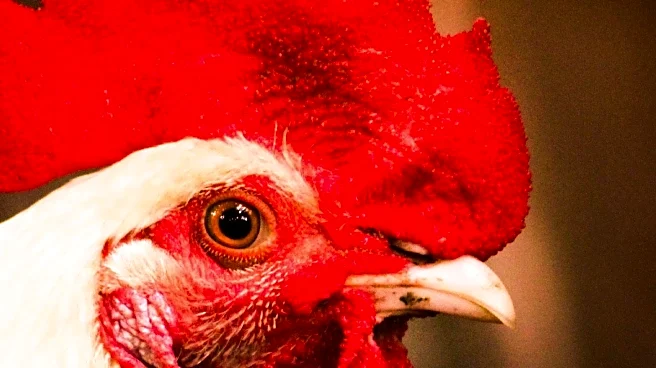What's Happening?
A Washington state resident has tested positive for bird flu, marking the first human case in the U.S. in nine months. The patient, an older adult with underlying health conditions, was hospitalized with symptoms
including high fever and respiratory distress. The strain, H5N5, has been seen in animals but not humans before. Health officials are investigating the source of infection, likely linked to domestic poultry or wild birds.
Why It's Important?
The case underscores the ongoing risk of zoonotic diseases and the importance of monitoring animal-to-human transmission. While the risk to the general public is currently low, the emergence of new strains in humans highlights the need for vigilance in public health surveillance. It also emphasizes the importance of biosecurity measures in agriculture to prevent the spread of avian influenza.
What's Next?
Health officials will continue to monitor the situation and investigate potential sources of infection. Efforts to prevent further transmission may include increased surveillance of poultry and wild bird populations. Public health campaigns may focus on educating the public about preventive measures.
Beyond the Headlines
The case raises concerns about the potential for avian influenza strains to mutate and pose greater risks to human health. It highlights the interconnectedness of human and animal health and the need for integrated approaches to disease prevention.









